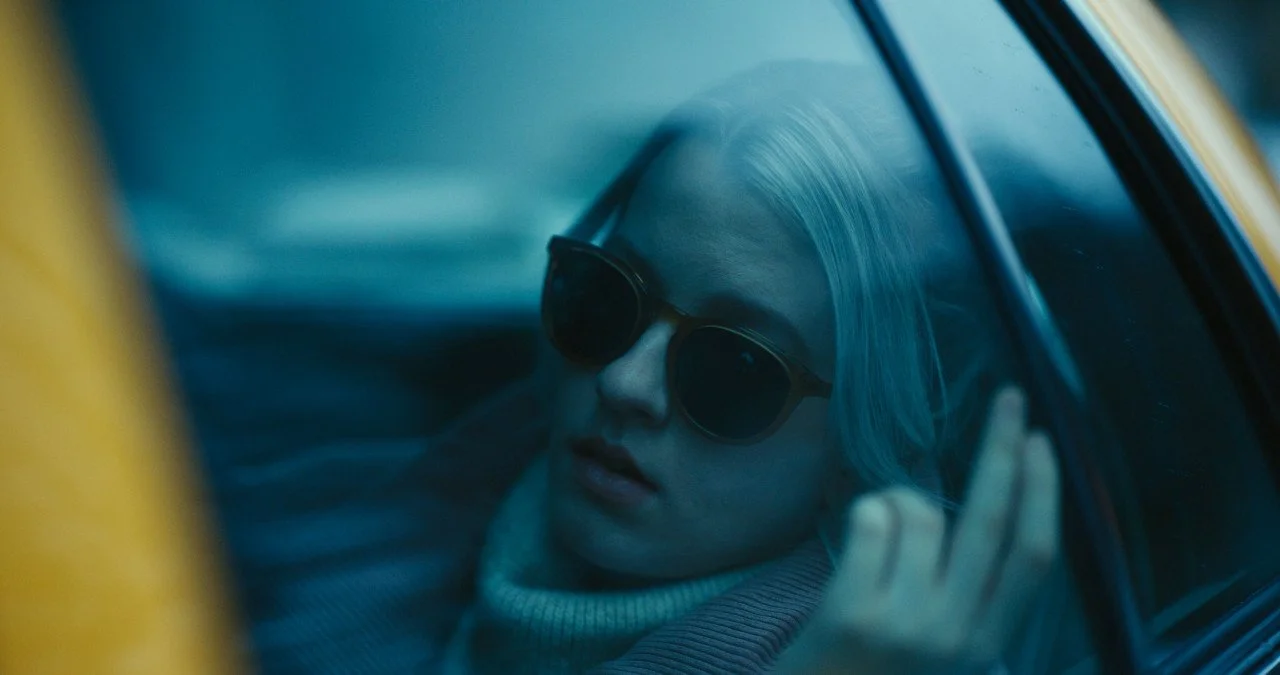See For Me: Okay, It's Only Mid-January, But Here's the Year's Best Thriller
By Thom Ernst
Rating: B
A 'best of the year' moniker has no leverage in early January. But there is value in noting a formidable benchmark. See for Me, the unexpected thriller from Canadian director Randall Okita, sets the standard for genre films of to follow in 2022.
Okita has made many stand-alone short films—notably the award-winning The Weatherman and The Shadowboxer. He also made Lockpicker (2016), a feature film that achieves a lot as a study of youth and crime, and infuses with ominous threats.
See for Me with its trigger-loaded synopsis—blind girl confronts home invaders—and an American lead (Skyler Davenport) seems an unlikely next step for Okita, an untested plunge into genre filmmaking.
But the plunge might not be as steep as first thought. Like so many things that seem to sprout out of nowhere, a closer look reveals a foundation that has long been in place. Aspects of Sophie, the central character in See for Me, began in Lockpicker. Pinpointing what those aspects are would be to rob you of any chance of discovering them on your own.
See for Me revolves around Sophie (Davenport), a former athletic skier who has lost her sight and now clings to whatever semblance of independence she can muster. Sophie's attitude seems to stem from a refusal to entertain a membership at a club she has no intention of joining. Her behaviour suggests an ableist frustration within the differently abled community.
Sophie haughtily refuses her ski buddy's attempts to get her back on the slopes, and she grudgingly agrees to her mother's request to download an app called See for Me.
What Sophie hopes to avoid as she attempts to sneak beneath her mother's protective watch is the inevitable lecture about why caring for a stranger's pet alone in an isolated mansion is not the ideal weekend job for the visually challenged.
But Sophie has developed her own survival skill set, which she enforces with unwavering resistance to anyone's help. In her fierce protection of her independence, Sofie becomes her own worst enemy; that is until a trio of thieves invades her space.
PROUDLY SUPPORTS ORIGINAL-CIN
And this is where the app comes in: At the other end of the See for Me, app is Kelly (Jessica Parker Kennedy), a military-trained vet with a no-bullshit attitude perfectly suited to Sophie's liking. It's up to Kelly to be Sophie's eyes in the battle against the home invaders.
The film owes a small debt to similarly themed films of differently abled people in distress like Lady in a Cage (1964), Hush (2016), and Don't Breathe (2016). But it's Terrence Young's Wait Until Dark (1967) with Audrey Hepburn, a story that also involves a seeing-impaired woman stalked in the confines of a private home, to which See for Me shares the closest ancestorial link.
The difference is, Davenport, unlike Hepburn or any of the actors portraying these characters, is as visually challenged as the character she plays. It is an essential step towards equality in casting that does not compromise the story.
The appearance of Kim Coates well serves the film. Coates arrives on the scene with the menacing edge of a man capable of making better decisions, but prefers the rush of acting on impulse. And Coates’ intense glare—eyes that calculate rather than see—makes him an even better choice for the role.
Adam Yorke's and Tommy Gushue's contribution demands an appreciation of the implausible. Still, Okita keeps a firm grip on the film's action, maneuvering the story through its layers of twists and possibilities without putting too much of a strain on our disbelief.
See for Me glides gingerly into the home invasion horror genre as not to collapse the narrative into a tawdry mess of violent retribution, although all comeuppances are intact. Okita's not one to leave you hanging.
See for Me. Directed by Randall Okita. Starring Skyler Davenport, Jessica Parker Kennedy, and Kim Coates. Now available for streaming.



